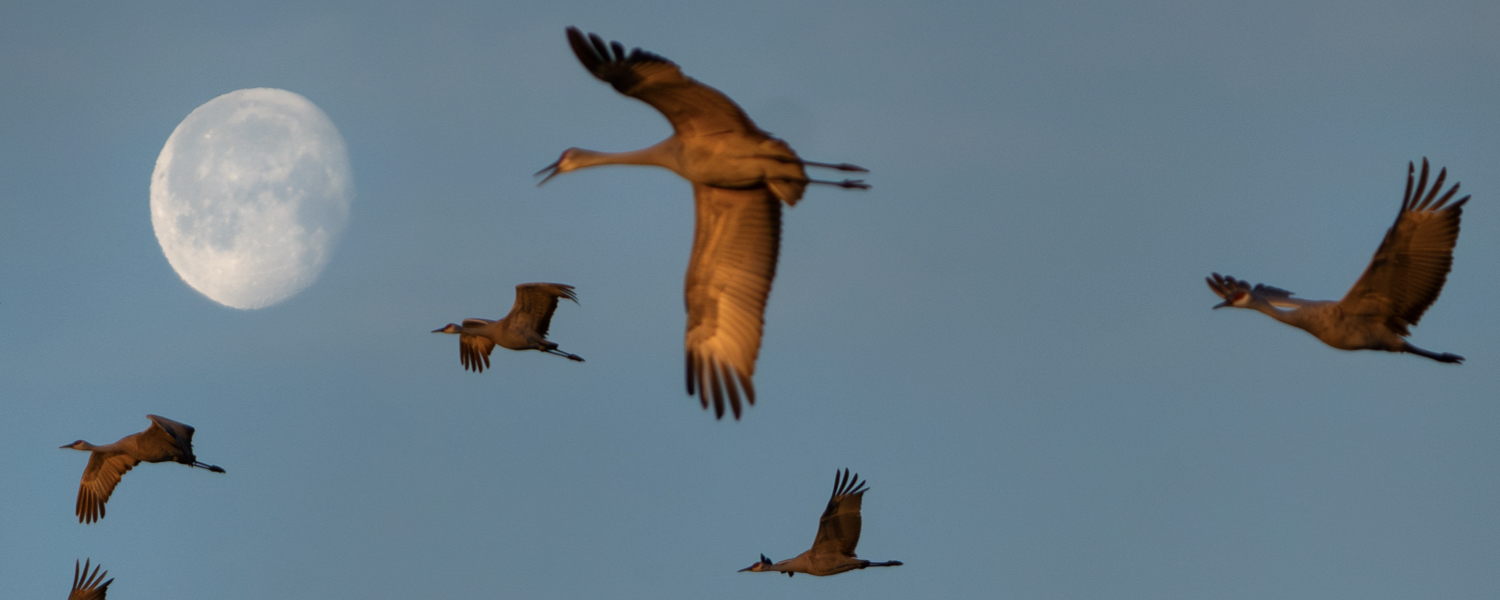

Since times untold the departures and arrivals of cranes in autumn and spring have heralded the changes of seasons. During these journeys across continents, cranes stop at traditional sites, known as staging areas, to rest and build up fat reserves for the next flight. In central Asia, cranes migrate at astounding altitudes over the Himalayas. Festivals and crop planting in some cultures are associated with the migration of cranes. In recent years, extensive new information about the migration of cranes has been secured using telemetry devices attached to cranes that communicate with satellites and cell phone towers. Dr. George Archibald, Co-Founder and Senior Conservationist of the International Crane Foundation, will summarize what is known about the migrations of cranes across Asia and North America and how ICF works to secure these stopovers.
Dr. George Archibald co-founded the International Crane Foundation in Baraboo, Wisconsin, in the spring of 1973, along with Dr. Ronald Sauey, acolleague and friend from Cornell University, as a global center to study and conserve cranes and protect the habitats and flyways they need to survive. For27 years, Dr. Archibald served as the President of the Foundation. He envisioned programs developed and implemented using a creative combination of field research, public education, habitat protection, captive propagation, reintroduction,and partnership with local communities living near the cranes. One of Dr.Archibald’s first projects in North America was to save the Endangered WhoopingCrane, which was on the brink of extinction.
Dr. Archibald received his undergraduate degree from Dalhousie University in Halifax, Nova Scotia, in 1968, and completed his Ph.D. at Cornell University in 1977.In recognition for his accomplishments, he has received four honorary doctorates and many awards including the Gold Medal from the World Wildlife Fund, a Fellows Award from the MacArthur Foundation, the Wildlife Conservation Medal from the Zoological Society of San Diego, the Lilly Medal presented by the Indianapolis Zoo, and the Douglas H. Pimlott Award from Nature Canada. In2013, Archibald was awarded the Order of Canada on behalf of Queen Elizabeth II and received the inaugural Dan W. Lufkin Prize for Environmental Leadership from the National Audubon Society.